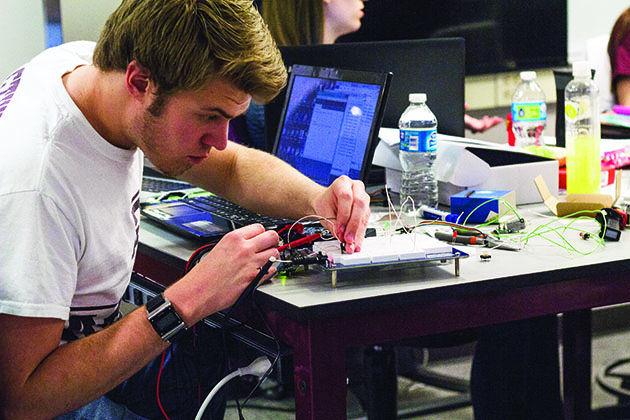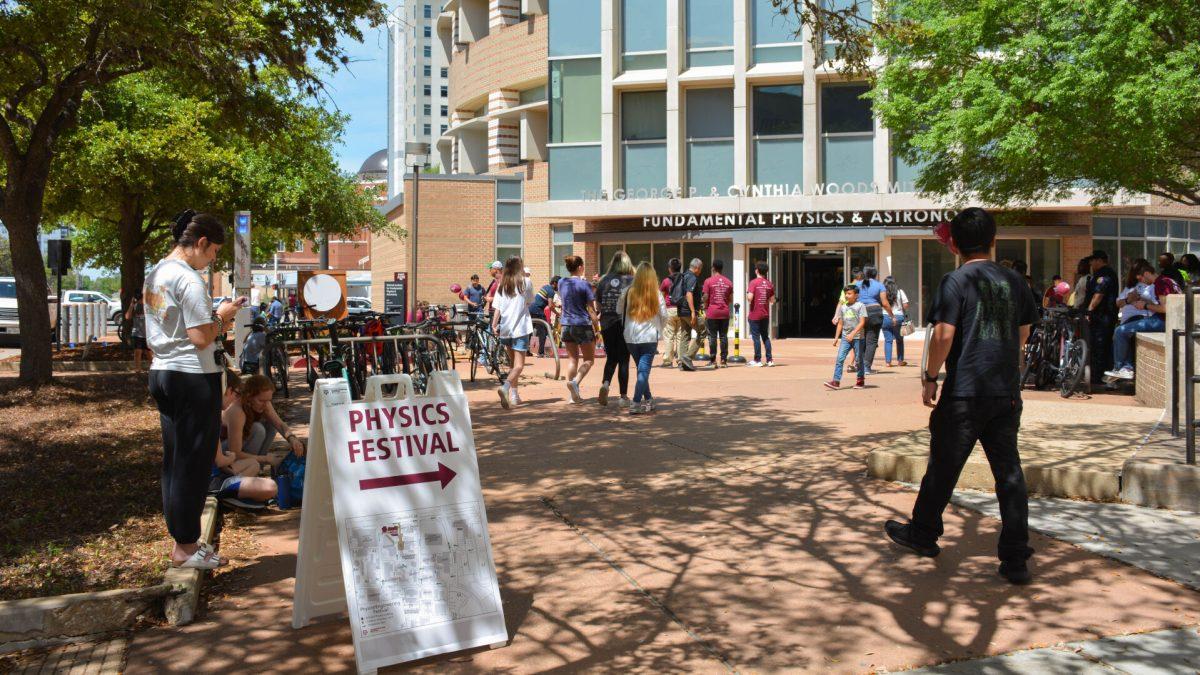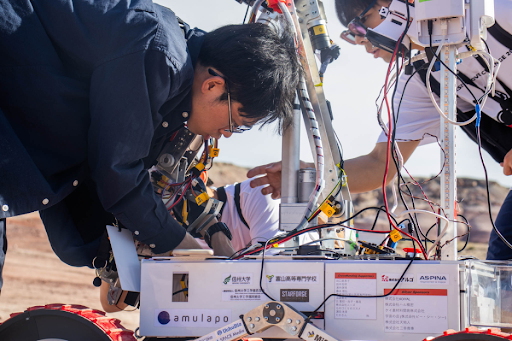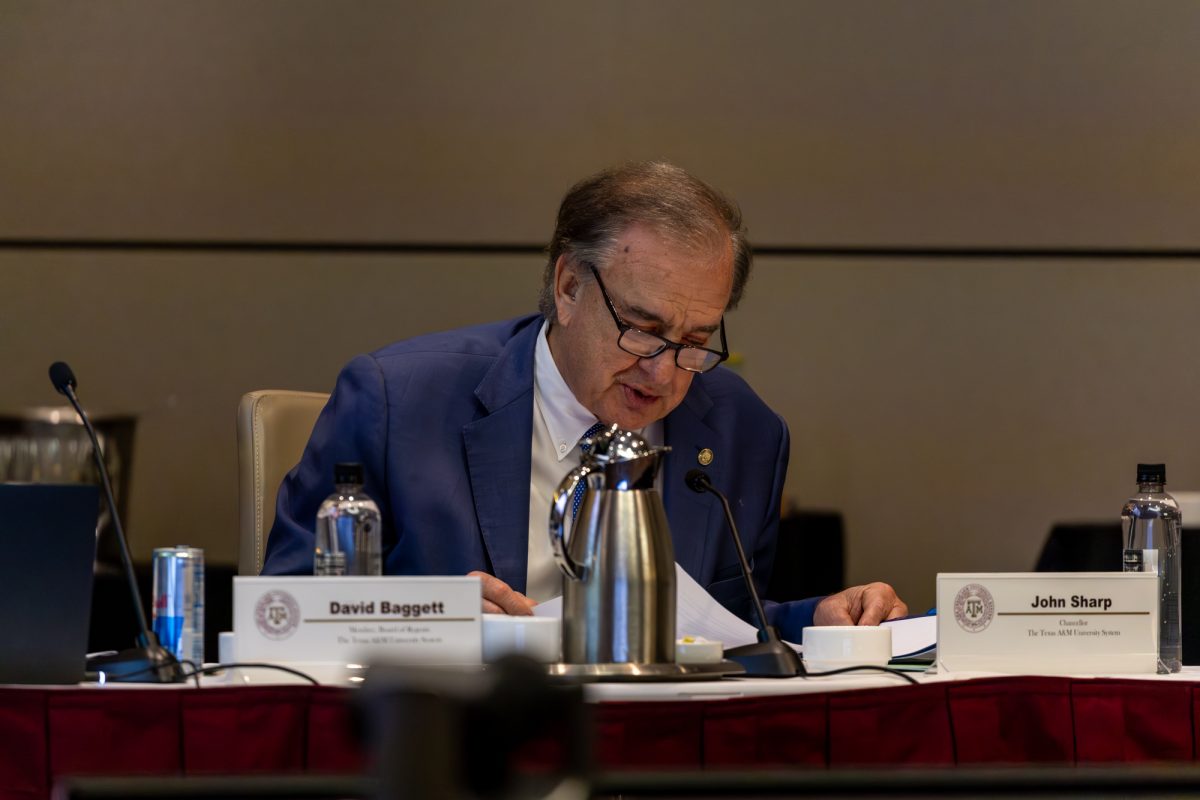As many took the weekend off, few dedicated student engineers worked hard to come up with some innovative solutions to real world problems.
Teams comprising freshmen to doctoral students were tasked with coming up with solutions to need statements given by representatives from industry. The theme for this year is making the “internet of things” come alive. They formed into nine teams and worked all through the weekend with help from the staff and resources at the Engineering Innovation Centre. The teams presented their solutions to a panel of judges on Sunday evening, where one of the teams would win the competition.
Rodney Boehm, the Industry mentor for Dwight Look College of Engineering described the latest event, which takes place every semester.
“I call the first phase as the ‘dance’ — where students met with the industry representatives on Friday evening and understood the problems before forming groups. They then went into the ‘design phase’ where they started conceptualizing what they would do and how they would build it. Over the 48 hour weekend, they were in the ‘build phase’ which is the process of building their working prototypes. The final phase on Sunday is called the ‘sell’ where they presented their solutions to the companies.”
Darrell Lane, Advisory Director at PricewaterhouseCoo, talked about the company’s involvement in the event.
“We are trying to find great students through getting them to work on challenges we have seen our clients face in the real world,” Lane said. “Most people assume PwC is an accounting company but we certainly look for great talent that includes those from the Dwight Look College of engineering. So we are trying to build relationships with academia and extend our brand.”
Ritika Gandhi, a student in Management Information Systems is part of a team sponsored by the American Red Cross that is working to save the lives of people when in danger. Their solution helped them win the competition Sunday evening.
“We worked with the American Red Cross and our problem is to make sure that densely populated neighborhoods have a connected system in place that will detect a fire accident in time and alert the residents so that they vacate the place at the earliest,” Gandhi said. “There are many ways to do this and the way we chose is to implement the basic infrastructure which enables the fire alarms to communicate with each other and alert the concerned people in close proximity.”
Another team has been working on a device that can assist in taking care of the elderly.
Ashley Knorr, a Petroleum engineering major, described how their device works.
“The basic idea is to make a smart medical container,” Knorr said. “When someone opens the lid, it [the machine] will dispense out one pill and our smart technology will send a text message or email to a caregiver at a remote location making sure that the medicine has been delivered at the right time.”
One interesting project was where students used wearable technology on cattle. Yazan Zakaria, a Civil engineering major described what his team was doing.
“We’ve been working with a Fitbit device, a wearable piece of technology that’s placed on a cow’s ear, to track its movement and health,” Zakaria said. “The device measures the temperature, movement and the heart rate of the cow. These vital signs will give a good indication of the cow’s health. The rancher just drives past the cows as his tablet collects the data via
Bluetooth for further analysis. The whole reason any rancher would want to implement this system is because he can increase the amount of healthy cows on his ranch and decrease the death loss due to diseases like respiratory and digestive problems”
Viacheslau Kudrashou, a Petroleum engineering major is part of a group that is designing a solution in response to a problem statement written by McKinsey and Company.
“Parking space is hard to find these days,” Kudrashou said. “What we have come up with is a solution where people who have reserved parking can open up their spaces for other to use when they do not have their car parked. By using sensors to detect a car’s presence and location services, we can allow a mobile app to determine the vacancy and also charge the user for the duration of the parking.”
Students work to solve industry problems
March 8, 2015
Tim Lai — THE BATTALION
Nuclear engineer junior James Bunsen works on his invention at Aggies Invent.
0
Donate to The Battalion
$1765
$5000
Contributed
Our Goal
Your donation will support the student journalists of Texas A&M University - College Station. Your contribution will allow us to purchase equipment and cover our annual website hosting costs, in addition to paying freelance staffers for their work, travel costs for coverage and more!
More to Discover










